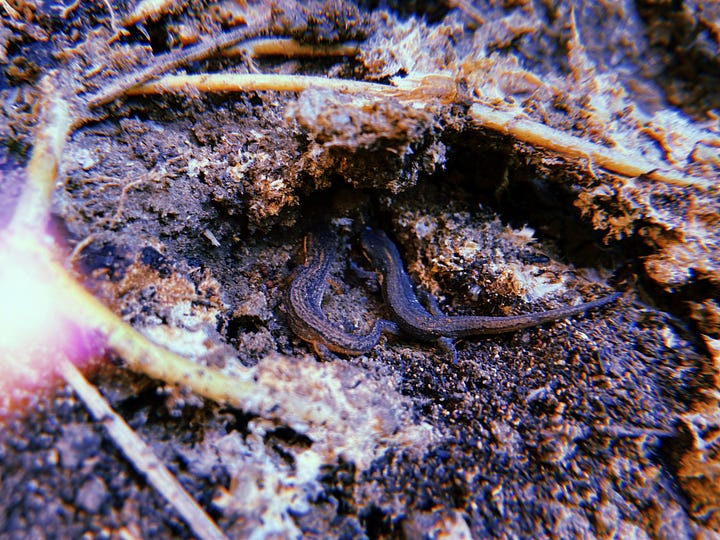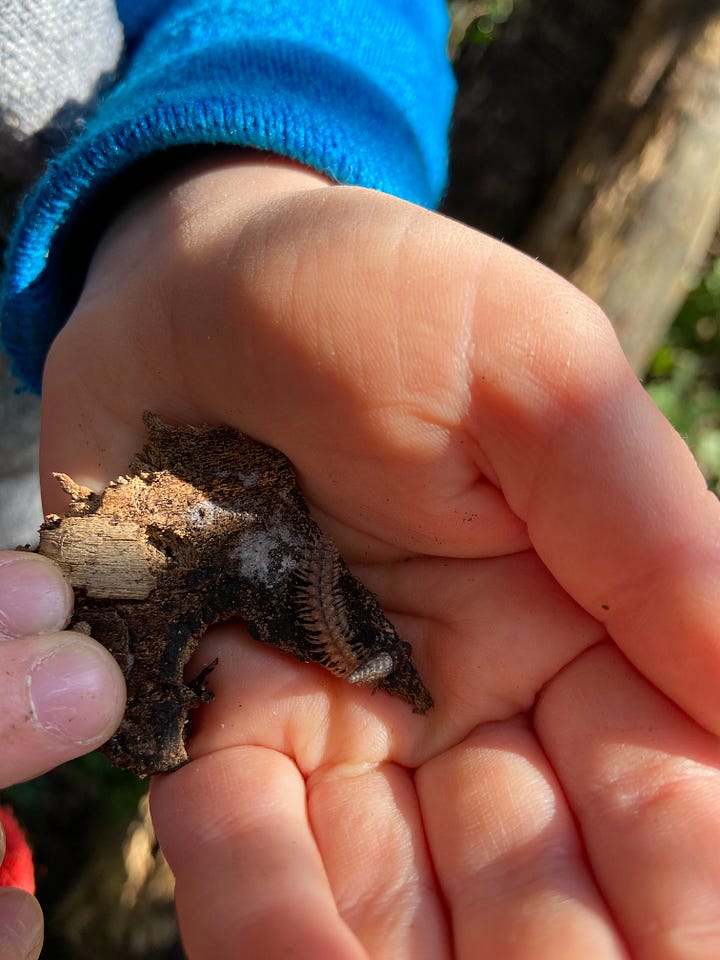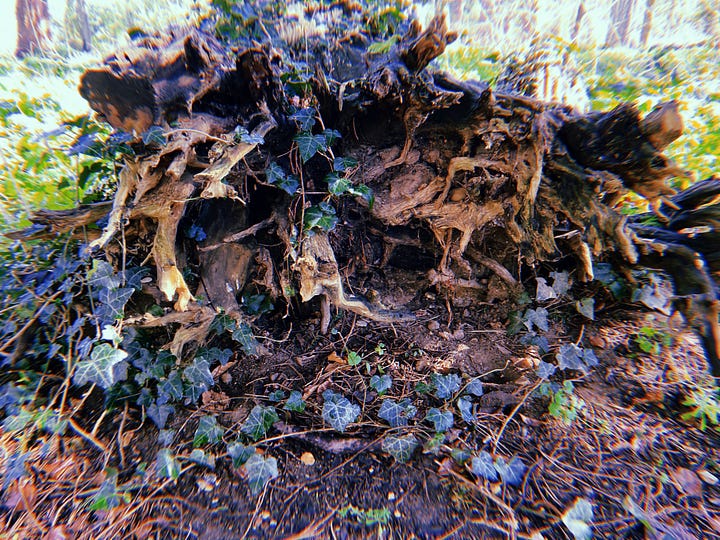Academic publishing and why we even science
It’s not (always) about human health and grand causes
I’m on a train heading back from CopyCon 2024, a copywriting conference that’s simply the tits. Last night, I was chatting with Jo Marshall, who’s not only one of the best people I’ve met but also happens to be a shit-hot copywriter. Jo works in education, writing for universities and helping them tell the world why their research and courses are something people should care about.
Anyway, a few ciders in and we were discussing the ‘why’ of why scientists do science, or at least get into science. “What’s their motivation? Who did you want to help, what did you want to change?” And it seems the general view from people outside academia is that research is all about improving human health, fighting climate change, saving society, etc.
Selling science
This is totally understandable – everyone says it. I mean, just take a look at what even a few top universities say about their research:
UCL says
Research can help us address the most pressing challenges facing the world today, and enable future generations to live happier, healthier lives. We champion and invest in the power of knowledge and collaboration to change the world, addressing some of the major challenges of our time, such as climate change, mental health and wellbeing, data-empowered societies, inequalities, intercultural communications, and beyond.
Cambridge says
Cambridge is forging a future for our planet. We are committed to achieving excellence in research and scholarship, and to ensuring that our research contributes to the well-being of society. We seek to provide a creative and supportive environment in which ideas are generated and can flourish.
Oxford says
Our work helps the lives of millions, solving real-world problems through a huge network of partnerships and collaborations. The breadth and interdisciplinary nature of our research sparks imaginative and inventive insights and solutions.
Imperial says
Our highly ambitious, collaborative, multidisciplinary community of researchers possess a common goal of tackling the biggest scientific challenges of our time. This is only possible through our outstanding collective research ethos, and by placing public trust and confidence in our research at the heart of everything we do.
You can see there’s a real emphasis on the big-picture stuff. The grand causes. Heroic and selfless goals.
Now, I’m sure there are plenty of scientists who do go into research to cure cancer or save the dolphins or whatever. It’s just that I’ve not met any of those outside the realms of medicine. The vast majority of researchers I’ve known got into science because they were driven/bothered by a simple child-like curiosity that asks, “How does that happen?”
It’s about curiosity
I spent over 3 years at Cambridge staring down a microscope trying to figure out how cells in the embryo of a tiny little shrimp know where they have to go to build a whole bloody animal! How do they know which way was up and which way was down? Do they need their neighbouring cells to orientate themselves? What happens if you remove a cell early on?! All the questions, all the time and zero interest in human health or big-picture stuff. I just wanted to solve this little problem.
And this is probably true for all those scientists studying cell signalling pathways or animal mating behaviours or subatomic particles: it’s research driven by curiosity, not a desire to better society in a tangible way. Sure, you can always say a contribution to the total human knowledge pool benefits society, but sometimes it’s just more simple and more selfish than that. Sometimes you just want to know how something happens.




Actually, it’s about money
The problem here comes in the form of value. Everything needs to be paid for and so everything needs to be sold. When you need more funding for your research you have to sell your science. It’s hard to sell,
“We want to see what happens in catfish brains when they eat a shit load of copper because it’s an interesting essential, but toxic, heavy metal”.
Whereas it’s much easier to sell,
“We want to understand the neurotoxic effect of dietary copper in a catfish model because when copper homeostasis becomes dysregulated, it can lead to symptoms we see in diseases like Alzheimer's disease.”
Human-centric justification shoe-horned in to add perceived value. You see this everywhere because everyone is trying to sell their research in one way or another and people usually only see value in things that affect humanity directly. This leads to people trying to justify their work in terms of how humans directly benefit. Grant applications even have specific sections for this information.
We also see this desperate desire to assign value to things in conservation, with the natural capital approach. If you don’t know what that is, it’s an approach where you try to assign monetary values to parts of nature (forests, wetlands – even biodiversity) so other folk can weigh up the ‘economic benefits’ of preserving versus exploiting those resources. In theory, it’s supposed to make the value of nature more ‘visible’ in economic planning, which is supposed to lead to better, more effective, conservation efforts.
But the flip side is we can also use it to justify environmental damage. If you slap a monetary value on something, it implies there’s some form of cost-benefit analysis that can justify some degree of destruction or degradation if the perceived benefits (like economic gains) outweigh the assigned ‘value’ of the natural resource. Sounds a like a way to legitimise screwing over our environment under the guise of ‘informed decision-making’, rather than just prioritising ecosystem health and biodiversity for the intrinsic sake of it. But anyway, I’m getting off-topic. Let’s head back to having shoe-horned some human-centric benefits into research.
Publishing is weird
Then there’s the constant pressure to publish work. Academic publishing is dominated by money-grabbing (*cough* evil *cough*) giants like Elsevier. It’s a system that prioritises big splashy sensational results that sell subscriptions. Scientists need to publish to get grants and having work in a high-impact journal boosts your chance of getting a grant – everyone wants a paper in a top-tier journal like Nature, Cell or Science, not Bob’s Random Research Rag.
Obviously, this means scientists chase research that high-impact journals want and avoid riskier, long-term projects that lack immediate sex appeal. It’s a messy cycle of doing research fancy journals want to publish to get grants to do research fancy journals want to…
This whole thing kills curiosity because it’s mostly sensational human-centric research that sells. The result is too much piss-poor and repetitive science, fake data and a trove of tangential research concepts that never get explored because ain't nobody gonna fund or publish those. It’s a weird system driven by profit rather than something concerned with the advancement of knowledge.
Do it for David
But everyone loves a wildlife show. Everyone tunes into another round of Sir David Attenborough squatting down in the snow beside a group of oblivious penguins in the Antarctic. People happily sit and listen to Chris Packham talk about tits in a tree and what they’ve been up to all Spring. Folk also listen to Brian Cox, and before him Sir Patrick Moore, waxing lyrical about the wonders of the night sky, the motion of the planets and the nature of the universe. None of the decades of research that went on behind the scenes to bring us these captivating explanations and insights into the natural world was primarily driven by a desire to help humans fight diseases or live longer. It was all driven by “How does that happen?”
We need to embrace that motivation, that curiosity, because it’s at the heart of why so many scientists do what they do. Being forced to reframe everything in the light of how it benefits humans is exhausting. It’s boring. It’s also just plain old disingenuous. There’s nothing quite like investigating a weird bit of data only to find yourself falling down a rabbit hole that leads to a new piece of understanding, which, at that moment, is known only to you. It’s proper child-like wonderment.
We should be valuing the simple quest for knowledge and a desire to explore the natural world. It doesn’t always need to be justified by outcomes to help humans live better lives. I’d argue that our lives are made better by a deeper understanding of the world around us. I don’t know about you but the idea of being part of something working to unravel a few of nature’s mysteries is way more appealing than pretty much anything else.
The next time you end up reading about research, remember, behind all the human health buzzwords is a scientist with the same childlike curiosity and wonder that makes us tune in to watch penguins slide on their bellies.
There are cosy hoodies now in the store as well. It’s the “Super Cosy – Unisex hoody”
When you get out the water and need to defrost or need to stop your nipples freezing off, throw on an Old + Board Super Cosy. It's, er, well, it's super cosy. Wrap up before you get to the skate park or chuck it on to defrost when you get out the water. Or just slouch around the house looking bloody awesome. It's your bloody cosy hoody after all.






Excellent article, Bill. Why people science has a few parallels with why people work, me thinks.